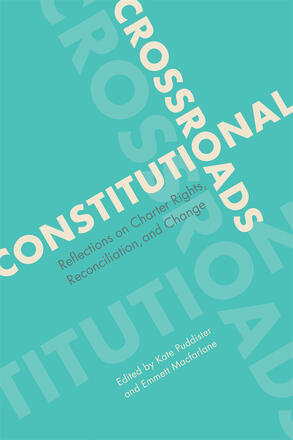
Constitutional Crossroads
Reflections on Charter Rights, Reconciliation, and Change
La description
Four decades have passed since the adoption of the Constitution Act, 1982. Now it is time to assess its legacy. As Constitutional Crossroads makes clear, the 1982 constitutional package raises a host of questions about a number of important issues, including identity and pluralism, the scope and limits of rights, competing constitutional visions, the relationship between the state and Indigenous peoples, and the nature of constitutional change.
This collection brings together an impressive assembly of established and rising stars of political science and law, who not only provide a robust account of the 1982 reform but also analyze the ensuing scholarship that has shaped our understanding of the Constitution. Contributors bypass historical description to offer reflective analyses of different aspects of Canada’s constitution as it is understood in the twenty-first century. With a focus on the themes of rights, reconciliation, and constitutional change, Constitutional Crossroads provides profound insights into institutional relationships, public policy, and the state of the fields of law and politics.